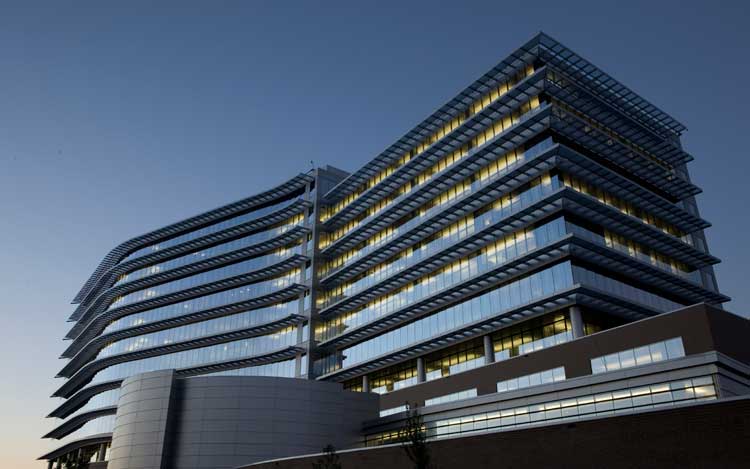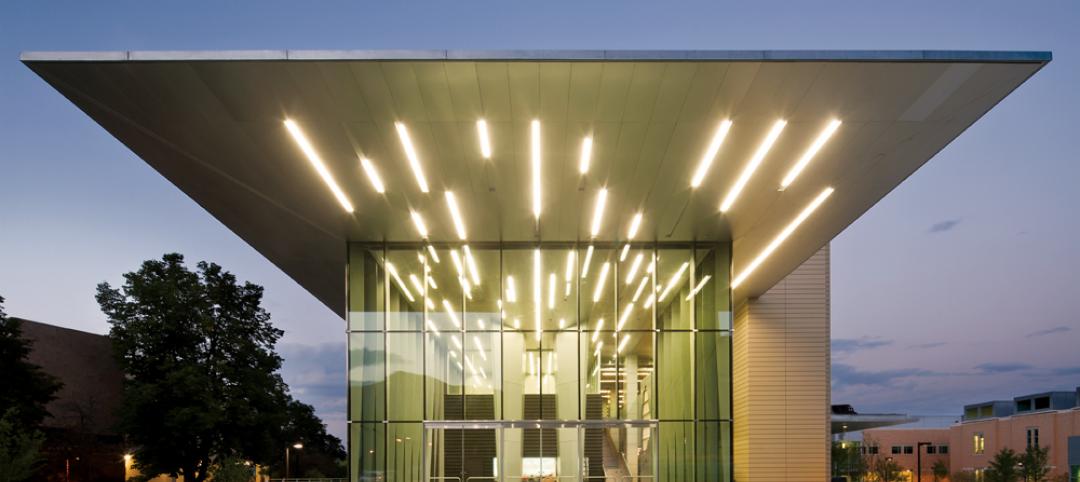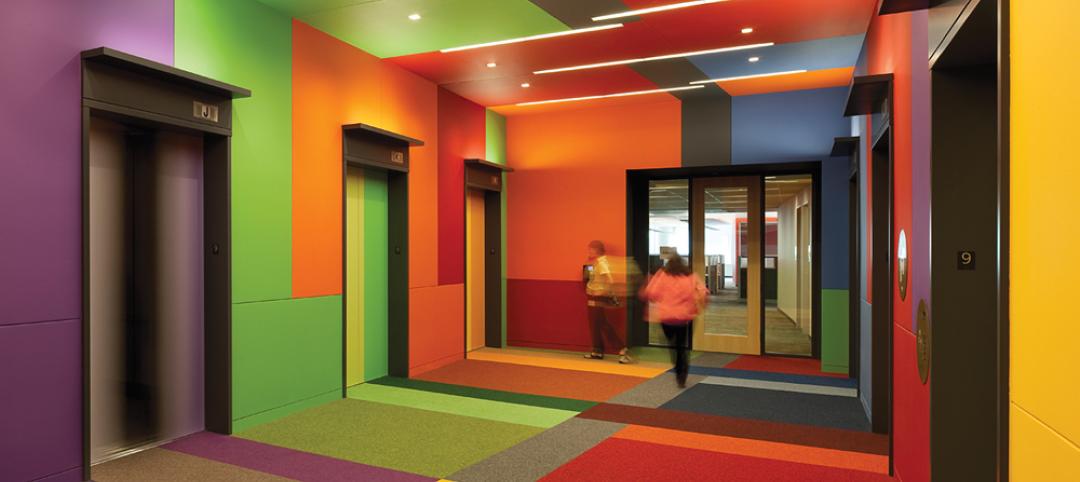CBRE Group announced today five recipient institutions in its Real Green Research Challenge (RGRC). Launched in September 2012, the RGRC is CBRE’s $1 million commitment to fund leading-edge sustainability research and innovation in commercial real estate.
CBRE has awarded RGRC funding and organizational support to sustainability projects developed by the Natural Resources Defense Council, Stanford University, EURO Institute of Real Estate Management, Cleveland State University and Central Michigan University, and Maastricht University.
“Growing market awareness of commercial buildings’ environmental impact is inspiring innovation in sustainability research,” said Bob Sulentic, CBRE’s President and CEO. “The Real Green Research Challenge advances this research by providing financial resources as well as access to CBRE’s market-leading global market data and technical expertise to help address some of the most challenging sustainability issues facing commercial real estate owners, investors and occupiers.”
After an evaluation of more than 100 submissions by an independent judging panel, CBRE has chosen five projects to receive RGRC financial awards:
- a rating system for comparative tenant energy use that provides a quantitative foundation for identifying and promoting energy efficient practices (Natural Resources Defense Council’s Center for Market Innovation);
- a detailed empirical evaluation of EPA ENERGY STAR® energy management strategies allowing facilities and property managers to prioritize energy efficiency projects (Stanford University, Center for Integrated Facility Engineering);
- a comprehensive economic analysis of the value implications of green building practices on large institutional real estate portfolios (EURO Institute of Real Estate Management);
- a new industry-wide, regionally sensitive, green building scoring protocol system to inform U.S. office tenants’ leasing decisions and developers’ sustainable building choices (Cleveland State University and Central Michigan University); and
- a quarterly green building index of the top 30 U.S. metro markets, yielding insights for policy makers, developers and other stakeholders and supporting lenders’ risk management analysis and investors' decisions (Maastricht University).
“The projects supported through the Real Green Research Challenge will add significant knowledge to some of the key sustainability issues in commercial real estate, such as the relative value of sustainable buildings, the most effective energy efficiency initiatives and the location of green building market growth,” said Dave Pogue, CBRE’s Global Director of Corporate Responsibility. “These and other issues are the focus of the projects CBRE is funding, and the answers could have a profound effect on how buildings are leased, occupied and improved in the future.“
CBRE’s Environmental Sustainability program includes global commitments in 11 key areas of environmentally sound performance, including resource management, occupancy, communications and training, public policy and procurement. The program provides best practices and initiatives that strengthen CBRE’s own environmental commitment, reflect the best environmental practices in our clients’ properties, and provide vital training and education to CBRE professionals.
For more information about the RGRC, please visit www.cbre.com/rgrc.
About CBRE Group, Inc.
CBRE Group, Inc. (CBG), a Fortune 500 and S&P 500 company headquartered in Los Angeles, is the world’s largest commercial real estate services and investment firm (in terms of 2012 revenue). The Company has approximately 37,000 employees (excluding affiliates), and serves real estate owners, investors and occupiers through more than 300 offices (excluding affiliates) worldwide. CBRE offers strategic advice and execution for property sales and leasing; corporate services; property, facilities and project management; mortgage banking; appraisal and valuation; development services; investment management; and research and consulting. Please visit our website at www.cbre.com.
Related Stories
| May 17, 2013
40 Under 40 winners: Meet the architects
Of the up-and-coming AEC professionals to be named 40 Under 40 winners by the editors of Building Design+Construction, 18 make their living in the architecture profession.
| May 17, 2013
5 things AEC pros need to know about low-e glass
Low-emissivity glasses are critical to making today’s buildings brighter, more energy-efficient, and more sustainable. Here are five tips to help AEC professionals understand the differences among low-e glasses and their impact on building performance.
| May 17, 2013
University labs double as K-12 learning environments
Increasingly, college and university research buildings are doing double duty as homes for K-12 STEM programs. Here’s how to create facilities that captivate budding scientists while keeping faculty happy.
| May 17, 2013
LEED v4 has provision to reduce water use in cooling towers
The next version of the U.S. Green Building Council's LEED rating system will expand water-savings targets to appliances, cooling towers, commercial kitchen equipment, and other areas.
| May 16, 2013
Chicago unveils $1.1 billion plan for DePaul arena, Navy Pier upgrades
Hoping to send a loud message that Chicago is serious about luring tourism and entertainment spending, Mayor Rahm Emanuel has released details of two initiatives that have been developing for more than a year and that it says will mean $1.1 billion in investment in the McCormick Place and Navy Pier areas.
| May 16, 2013
Michael R. Bohn named Executive VP at Gilbane
Gilbane has promoted Michael R. Bohn to executive vice president. With over 28 years of service to the company and leadership roles on such high-profile projects as the University of Michigan Biomedical Science Building and the University of Chicago Medical Center, Bohn will now have responsibility for Gilbane’s New York and Midwest business units.
| May 15, 2013
Schneider Electric announces Global Xperience Efficiency Events for 2013
Schneider Electric’s Xperience Efficiency series will begin with events in the United States, China, Colombia, Brazil and Russia.
| May 15, 2013
Center for Green Schools, Architecture for Humanity release new tool for green schools
The 70-page guide demystifies the processes of identifying building improvement opportunities and finance and implementation strategies.
| May 14, 2013
Paints and coatings: The latest trends in sustainability
When it comes to durability, a 50-year building design ideally should include 50-year coatings. Many building products consume substantial amounts of energy, water, and petrochemicals during manufacture, but they can make up for it in the operations phase. The same should be expected from architectural coatings.

















